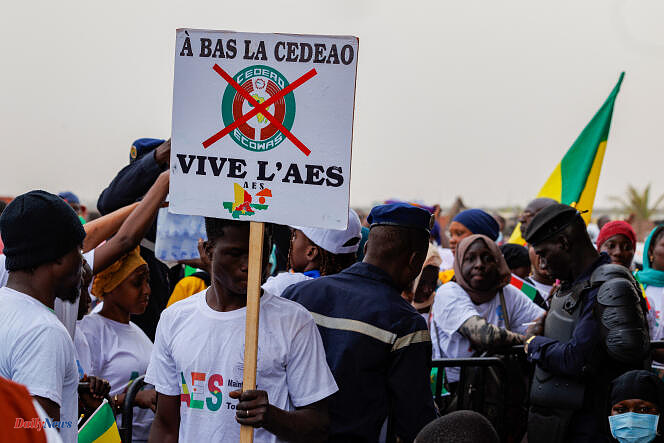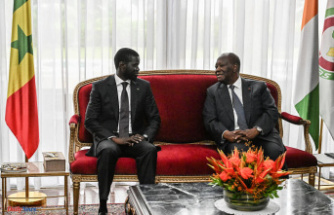Mali considers itself released from now on from its obligations towards the Economic Community of West African States (ECOWAS) after the announcement of its withdrawal, and not in a year, indicates a foreign affairs document consulted by AFP on Wednesday.
The junta in power in Bamako announced on January 28 the country's withdrawal from ECOWAS, at the same time as the military regimes in place in neighboring Burkina Faso and Niger with which it forged an alliance. Article 91 of the ECOWAS treaty stipulates that member countries remain bound by their obligations for a period of one year after having notified their withdrawal.
“The government of the Republic of Mali is no longer bound [by the] deadline constraints mentioned in Article 91 of the treaty,” underlines the Ministry of Foreign Affairs in a letter to ECOWAS. Foreign Affairs claims that ECOWAS itself made the treaty “inoperative” when it failed to fulfill its obligations by closing member states’ borders with Mali in January 2022, denying it access to the sea.
ECOWAS had at the time imposed heavy sanctions on Mali to force the military in power to commit to an acceptable timetable for handing over power to civilians. The ministry “reiterates the irreversible nature of the government’s decision” to withdraw “without delay from ECOWAS due to the organization’s violation of its own texts.”
A fractured region
The military regimes of the three Sahelian countries formally notified ECOWAS at the end of January of their country's withdrawal "without delay" from the organization, which unsuccessfully attempted to impose the return of civilians to power. These countries where civilian governments have been overthrown by successive military coups since 2020 have been suspended from ECOWAS bodies. The organization went so far as to threaten the use of force in Niger, where the military overthrew elected president Mohamed Bazoum.
The military regimes continue to denounce the instrumentalization made, according to them, of ECOWAS by France and their withdrawal is the latest act of rupture to date. They pushed the French ambassadors and forces out and turned politically and militarily towards Moscow. They have also formed an alliance placed under the sign of sovereignty and pan-Africanism.
Beyond its economic consequences which are still difficult to estimate, the announcement of the withdrawal further fractures a region hit by the violence of jihadist groups linked to Al-Qaeda or the Islamic State organization. This violence has left tens of thousands dead – civilians and soldiers – and millions displaced in the Sahel countries, and the progression of these groups threatens coastal countries.












